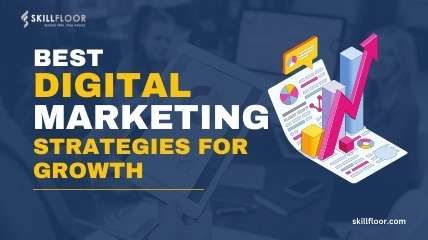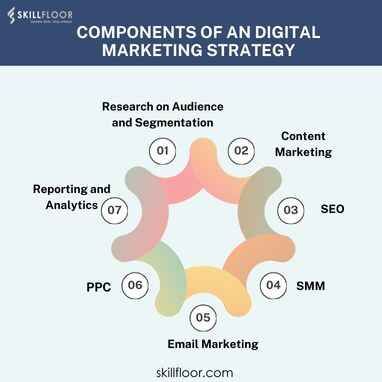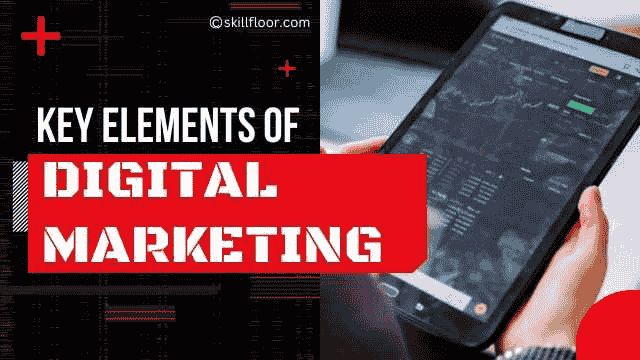What Is the Best Digital Marketing Strategy
Discover What Is the Best Digital Marketing Strategy to boost your online presence. Learn effective tactics to reach your target audience and achieve marketing success.

I've worked in digital marketing for over ten years, and during that time I've seen personally how successful the right strategy can be for a business. Ads and content that appear when you explore social media or perform an online search are not random; instead, they are the outcome of thoughtful planning. It's more important than ever to understand how to interact with your audience online in the age of digital media. I’ve seen businesses succeed or struggle based on their digital approach. What then defines an effective digital marketing strategy? Together, let's explore that using my personal experiences in this evolving field.
Let me tell you a little story first before we go into the specifics. I worked with a small e-commerce company a few years ago that was having difficulty growing its online presence. Even having an outstanding product, they were unable to engage with the audience they were targeting. In only a few months, we saw an increase in traffic and sales as a result of their thorough market analysis, approach changes, and implementation of a customized digital marketing strategy. My belief in the effectiveness of a well-executed digital marketing strategy has been reinforced by this experience.
Understanding Digital Marketing Strategy
A digital marketing strategy is a set of organized activities that help businesses achieve particular objectives using online channels. These platforms include, among others, websites, email, social media, and search engines. Understanding your audience and knowing how to properly contact them are the keys to a successful plan. This involves a combination of strategies, each with a unique part to play in the overall plan.
The Importance of a Digital Marketing Strategy
Having a digital marketing strategy is now essential in the very competitive world of today. Businesses run the risk of wasting time, money, and resources on projects that don't yield results in the absence of a defined plan. A more focused and efficient approach is made possible by a digital marketing strategy, which ensures that all advertising campaigns are in line with the company's goals.
For example, your plan might combine social media advertising with content marketing if your objective is to raise brand awareness. On the other side, you might be more open to paid search and email marketing if generating conversions is your main goal.
Components of an Effective Digital Marketing Strategy

-
Research on Audience and Segmentation
Any digital marketing strategy must start with a thorough understanding of the audience you are targeting. Who do they represent? What hurts them the most? Where do they go online to pass the time? You can more effectively target certain segments within your audience by using audience research to help you answer these questions.
-
Content Marketing
In the field of digital marketing, content is king. Building trust and increasing engagement with your audience requires high-quality content that speaks to them. Your content, whether it be podcasts, infographics, videos, or blog postings, should be valuable and meet the needs of your audience.
An effective example of content marketing is a blog that answers common questions from the audience you are targeting. This improves your brand's search engine ranks and establishes it as an expert in your sector.
-
Search Engine Optimization (SEO)
An essential part of any digital marketing strategy is SEO. It involves optimizing your content and website for ranking higher in search engine results, increasing potential customers' finding of you. On-page optimization, thorough knowledge of search engine techniques, and keyword research are all necessary for effective SEO.
For example, if you run a local bakery, optimizing your website with keywords like "fresh bread in [your city]" or "best bakery near me" can help attract customers who are looking for these terms.
-
Social Media Marketing
Social media platforms present unique chances for companies to build a personal connection with their audience. A successful social media strategy includes selecting the appropriate channels, creating engaging content, and interacting with your followers regularly.
Take the example of a clothing brand using Instagram to showcase its latest collections through visually appealing posts and stories. Through direct messages and comments, the brand interacts with followers and develops an engaged community around its products.
-
Email Marketing
One of the best strategies for developing clients and turning them into customers remains email marketing. An effective email marketing campaign targets the recipient's needs and interests directly with individualized content.
For example, to encourage customers to make additional purchases, a website seller may provide customized product recommendations based on past purchases.
-
PPC (Pay Per Click) Advertising
Businesses can bid on keywords using PPC advertising, and when users search for such terms, their adverts will appear. PPC is an essential part of any broad digital marketing strategy because, in contrast with organic methods, it may yield results right away.
Consider a tech company launching a new gadget. During the launch period, they might bid on keywords like "best smartphone 2024" with Google ads to generate traffic to their product page.
-
Reporting and Analytics
Without analytics, the digital marketing strategy is incomplete. You may make data-driven decisions to continuously optimize your strategy by keeping track of and evaluating your marketing efforts to find out what is and is not working.
With the help of tools like Google Analytics, you can get a complete understanding of your marketing performance by gaining insights into user behaviour, website traffic, and conversion rates.
Creating Your Own Digital Marketing Strategy
Developing an effective digital marketing strategy involves several key steps:
-
Define Your Goals
Determine your goals before launching any digital marketing campaigns. Your objectives need to be SMART—specific, measurable, achievable, relevant, and time-bound. Having specific goals will help your plan, whether your goal is to improve sales, generate leads, or improve website traffic.
-
Understand Your Audience
To learn about the interests, demographics, and online behaviours of your target audience, do an in-depth search. Your messaging and strategies will be informed by this information.
-
Choose the Right Channels
Not every digital marketing platform will work well for your company. Select the ones that most closely fit your objectives and target audience. For example, TikTok and Instagram may work better than LinkedIn if young adults are your target audience.
-
Create a Content Strategy
Any digital marketing strategy must have content as its basis. Make sure your content is in line with your objectives by planning it around the wants and needs of your audience. Think about the kinds of content—blog postings, videos, or social media updates that appeal to your audience the most.
-
Implement and Optimize SEO
Improve your website's content and search engine rankings by implementing SEO best practices. This involves making sure your website is mobile-friendly, using relevant keywords, and optimizing meta tags.
-
Use Social Media
Create a social media plan that includes publishing frequently, interacting with followers, and, if required, running specific ads. Social networking is an effective strategy for increasing website traffic and exposure for the brand.
-
Launch Email Campaigns
Make important, targeted emails for those who subscribe. Whether you're sending out a monthly newsletter, special offers, or product updates, email marketing allows you to connect with your audience directly.
-
Monitor and Adjust
To keep an eye on the success of your efforts in digital marketing, use analytics tools. Review your plan regularly and modify it in light of the findings. This can entail improving your PPC campaigns, changing your social media content, or modifying your SEO strategy.
Case Study: Airbnb’s Digital Marketing Strategy
Airbnb started in 2008, is an online platform that helps people rent out their homes to travelers. In the beginning, they struggled to compete with hotels and travel agencies. To grow, Airbnb needed a strong digital marketing strategy.
Goal:
Airbnb wanted to make more people aware of their service, get more users (both hosts and travellers), and build trust with customers.
Main Parts of the Strategy:
-
Content Marketing:
-
Storytelling: Airbnb shared stories of hosts and travelers on blogs and social media. This made the brand feel more personal and relatable.
-
User Photos: They encouraged users to share their travel photos using hashtags like #Airbnb, spreading the word about the service through real user experiences.
-
Social Media Marketing:
-
Choosing the Right Platforms: Airbnb focused on Instagram, Facebook, and Twitter, where many travel-loving people spend time.
-
Working with Influencers: They teamed up with popular travel influencers who shared their Airbnb experiences with a large audience, helping to build trust.
-
Search Engine Optimization (SEO):
-
Local SEO: Airbnb made sure their website showed up in search results when people looked for places to stay in specific locations.
-
Optimized Content: They created useful content that included important keywords, helping their site appear higher in search results.
-
Paid Advertising:
-
Targeted Ads: Airbnb used Google and social media ads to reach specific groups of people who were likely to book a stay.
-
Reminders: They used retargeting ads to remind people who visited their site but didn’t book a stay to come back and finish their booking.
-
Email Marketing:
-
Personalized Emails: Airbnb sent emails with tailored suggestions based on what users had previously searched for or booked.
-
Automated Messages: They set up automatic emails to keep hosts and guests informed with tips, deals, and updates.
Results:
-
Fast Growth: Airbnb quickly grew into a well-known global brand with millions of users.
-
Increased Awareness: More people became aware of Airbnb as an alternative to hotels.
-
High Engagement: Many users shared their positive Airbnb experiences online.
-
Built Trust: By sharing real stories and user content, Airbnb built a trusted community.
Developing the optimal digital marketing plan for your company involves a complete understanding of the audience you are targeting, well-defined goals, and a mix of effective strategies. It doesn't matter if you're just getting started or want to improve your current plan the important thing is to continue to be flexible and optimize your strategy using performance data. Do not forget that there is no one-size-fits-all approach to digital marketing. The optimal strategy for your company depends on its specific objectives, target market, and sector.
You may create a strategy for digital advertising that produces results and supports the growth of your company in the digital age by using the procedures described in this blog and the examples provided. Continue experimenting, keep up with current trends, and above all, focus on your audience.






























































